100 FreeRTOS Interview Questions : FreeRTOS is one of the most popular real-time operating systems used in embedded systems, IoT devices, and automotive applications. If you are preparing for an embedded software interview, you will likely encounter questions related to RTOS concepts, FreeRTOS internals, task scheduling, synchronization mechanisms, and memory management.
This guide provides a complete list of 100 FreeRTOS interview questions — ranging from beginner to advanced — to help you prepare effectively for your next embedded systems interview.
Why FreeRTOS Interview Questions Matter?
- FreeRTOS is widely used in automotive, aerospace, IoT, consumer electronics, and industrial systems.
- Companies test candidates on conceptual understanding and hands-on experience with FreeRTOS.
- Covering these questions will strengthen your RTOS fundamentals and improve your problem-solving ability in real-time environments.
FreeRTOS Interview Questions List
Here are the top 100 FreeRTOS interview questions, categorized for easier preparation:
1. FreeRTOS Interview Questions Basics
- What is an RTOS?
- What are the key features of an RTOS?
- What is the difference between an RTOS and a general-purpose operating system?
- Explain the concept of a task in an RTOS.
- What is a context switch in an RTOS?
- How does an RTOS handle interrupts?
- What is the purpose of a scheduler in an RTOS?
- Describe the task states in an RTOS.
2. FreeRTOS Interview Questions Fundamentals
- What is a semaphore in FreeRTOS?
- Explain the concept of priority inversion.
- What is a mutex and when would you use it in an RTOS?
- How does a FreeRTOS application handle memory management?
- What is a stack overflow and how can it be prevented in an RTOS?
- Describe the concept of preemption in an RTOS.
- What is a tick in FreeRTOS?
- How does a tick interrupt affect an RTOS application?
- Explain the concept of blocking and non-blocking tasks.
- What is the purpose of an idle task in FreeRTOS?
3. FreeRTOS Interview Questions Task Scheduling and Management
- How does an RTOS handle inter-task communication?
- What are the advantages and disadvantages of using an RTOS?
- What are the main components of FreeRTOS?
- Describe the architecture of FreeRTOS.
- How does FreeRTOS handle real-time constraints?
- What is the difference between a cooperative and a preemptive RTOS?
- Explain the role of the tick interrupt handler in FreeRTOS.
- How does an RTOS handle task scheduling?
- What is a timer in FreeRTOS?
- Describe the use of queues in FreeRTOS.
4. FreeRTOS Interview Questions Synchronization and Communication
- How does an RTOS handle priority inversion?
- What is a critical section in an RTOS?
- Explain the concept of task notifications in FreeRTOS.
- What is the purpose of an event group in FreeRTOS?
- How does an RTOS handle resource sharing among tasks?
- Describe the concept of time slicing in an RTOS.
- What is the role of a software timer in FreeRTOS?
- Explain the concept of task suspension in FreeRTOS.
- How does an RTOS handle dynamic memory allocation?
- What are the different scheduling algorithms used in an RTOS?
5. FreeRTOS Interview Questions Advanced FreeRTOS Features
- Describe the use of task notifications in FreeRTOS.
- How does an RTOS handle priority inversion?
- Explain the concept of interrupt nesting in FreeRTOS.
- What is the purpose of a tickless idle mode in FreeRTOS?
- Describe the concept of a tickless scheduler in an RTOS.
- How does an RTOS handle stack overflow detection?
- What is the purpose of a tick hook function in FreeRTOS?
- Explain the concept of time delay in FreeRTOS.
- How does an RTOS handle power management?
- What is the role of a software watchdog in FreeRTOS?
6. FreeRTOS Interview Questions Multi-Core and Resource Handling
- Describe the concept of an application hook function in FreeRTOS.
- How does an RTOS handle multiple processor cores?
- What is the purpose of a task handle in FreeRTOS?
- Explain the concept of tickless operation in an RTOS.
- How does an RTOS handle software timers?
- What is the role of a tick interrupt in FreeRTOS?
- Describe the use of a binary semaphore in FreeRTOS.
- How does an RTOS handle synchronization between tasks?
- What is the purpose of a tickless timer in FreeRTOS?
- Explain the concept of stack overflow protection in an RTOS.
7. FreeRTOS Interview Questions Memory and Error Handling
- How does an RTOS handle task synchronization?
- What are the main components of an RTOS?
- What is the purpose of an idle task hook in FreeRTOS?
- Explain the concept of task notification value in FreeRTOS.
- How does an RTOS handle inter-task communication using message queues?
- What is the role of a task switch hook in FreeRTOS?
- Describe the use of counting semaphores in FreeRTOS.
- How does an RTOS handle dynamic memory allocation in a multitasking environment?
- What is the purpose of an application-defined stack overflow hook in FreeRTOS?
- Explain the concept of a tickless idle hook in an RTOS.
8. FreeRTOS Interview Questions Hooks, Timers, and Delays
- How does an RTOS handle task prioritization?
- Describe the use of recursive mutexes in FreeRTOS.
- What is the role of a timer service in FreeRTOS?
- How does an RTOS handle time management?
- What is the purpose of an application-defined malloc failed hook in FreeRTOS?
- Explain the concept of a software interrupt in FreeRTOS.
- How does an RTOS handle thread-safe memory allocation?
- Describe the use of task notifications in inter-process communication in FreeRTOS.
- What is the role of a software timer hook in FreeRTOS?
- How does an RTOS handle task synchronization using event groups?
9. FreeRTOS Interview Questions Communication and Task Control
- What is the purpose of a memory pool in FreeRTOS?
- Explain the concept of cooperative multitasking in an RTOS.
- How does an RTOS handle task synchronization using binary semaphores?
- Describe the use of direct to task notifications in FreeRTOS.
- What is the role of a stack overflow hook in FreeRTOS?
- How does an RTOS handle task scheduling using round-robin algorithm?
- What is the purpose of a task delay until function in FreeRTOS?
- Explain the concept of a stream buffer in an RTOS.
- How does an RTOS handle priority-based preemption?
- Describe the use of inter-task communication using DMA in FreeRTOS.
10. FreeRTOS Interview Questions Multi-Core, Notifications, and Performance
- What is the role of a task tag in FreeRTOS?
- How does an RTOS handle task synchronization using event flags?
- What is the purpose of a task resume function in FreeRTOS?
- Explain the concept of a message buffer in FreeRTOS.
- How does an RTOS handle task scheduling in a multi-core environment?
- Describe the use of priority inheritance protocol in FreeRTOS.
- What is the role of a task notification hook in FreeRTOS?
- How does an RTOS handle interrupt latency?
- What is the purpose of a task notification hook in FreeRTOS?
- Explain the concept of priority-based interrupt nesting in an RTOS.
- How does an RTOS handle task synchronization using software queues?
- Describe the use of memory pools in dynamic memory allocation in FreeRTOS.
Tips to Prepare for FreeRTOS Interview Questions
- Understand RTOS fundamentals: scheduling, synchronization, tasks, ISRs.
- Practice writing FreeRTOS applications using semaphores, queues, and timers.
- Explore FreeRTOS source code for deeper understanding.
- Learn real-time debugging techniques (stack usage, trace tools, GDB).
- Review embedded C/C++ basics since coding skills are always tested.
Conclusion
This comprehensive list of 100 FreeRTOS interview questions covers everything from basic RTOS concepts to advanced FreeRTOS features. By mastering these questions, you can confidently face interviews for embedded systems, IoT development, and real-time software engineering roles.
You can also Visit other tutorials of Embedded Prep
- Multithreading in C++
- Multithreading Interview Questions
- Multithreading in Operating System
- Multithreading in Java
- POSIX Threads pthread Beginner’s Guide in C/C++
- Speed Up Code using Multithreading
- Limitations of Multithreading
- Common Issues in Multithreading
- Multithreading Program with One Thread for Addition and One for Multiplication
- Advantage of Multithreading
- Disadvantages of Multithreading
- Applications of Multithreading: How Multithreading Makes Modern Software Faster and Smarter”
- Master CAN Bus Interview Questions 2025
- What Does CAN Stand For in CAN Bus?
- CAN Bus Message Filtering Explained
- CAN Bus Communication Between Nodes With Different Bit Rates
- How Does CAN Bus Handle Message Collisions
- Message Priority Using Identifiers in CAN Protocol
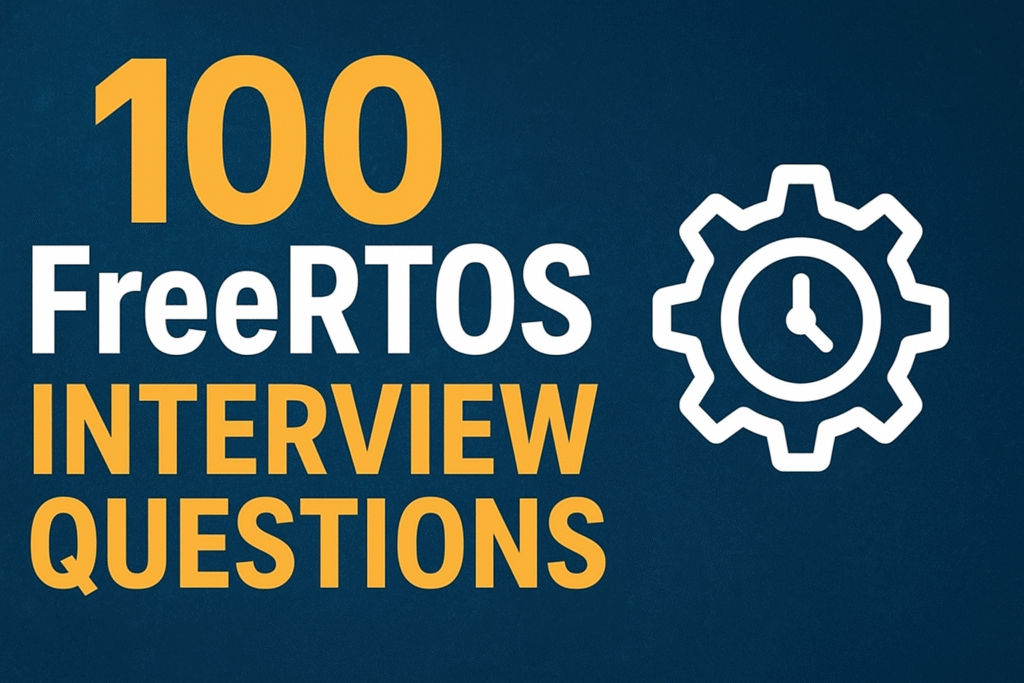
Mr. Raj Kumar is a highly experienced Technical Content Engineer with 7 years of dedicated expertise in the intricate field of embedded systems. At Embedded Prep, Raj is at the forefront of creating and curating high-quality technical content designed to educate and empower aspiring and seasoned professionals in the embedded domain.
Throughout his career, Raj has honed a unique skill set that bridges the gap between deep technical understanding and effective communication. His work encompasses a wide range of educational materials, including in-depth tutorials, practical guides, course modules, and insightful articles focused on embedded hardware and software solutions. He possesses a strong grasp of embedded architectures, microcontrollers, real-time operating systems (RTOS), firmware development, and various communication protocols relevant to the embedded industry.
Raj is adept at collaborating closely with subject matter experts, engineers, and instructional designers to ensure the accuracy, completeness, and pedagogical effectiveness of the content. His meticulous attention to detail and commitment to clarity are instrumental in transforming complex embedded concepts into easily digestible and engaging learning experiences. At Embedded Prep, he plays a crucial role in building a robust knowledge base that helps learners master the complexities of embedded technologies.
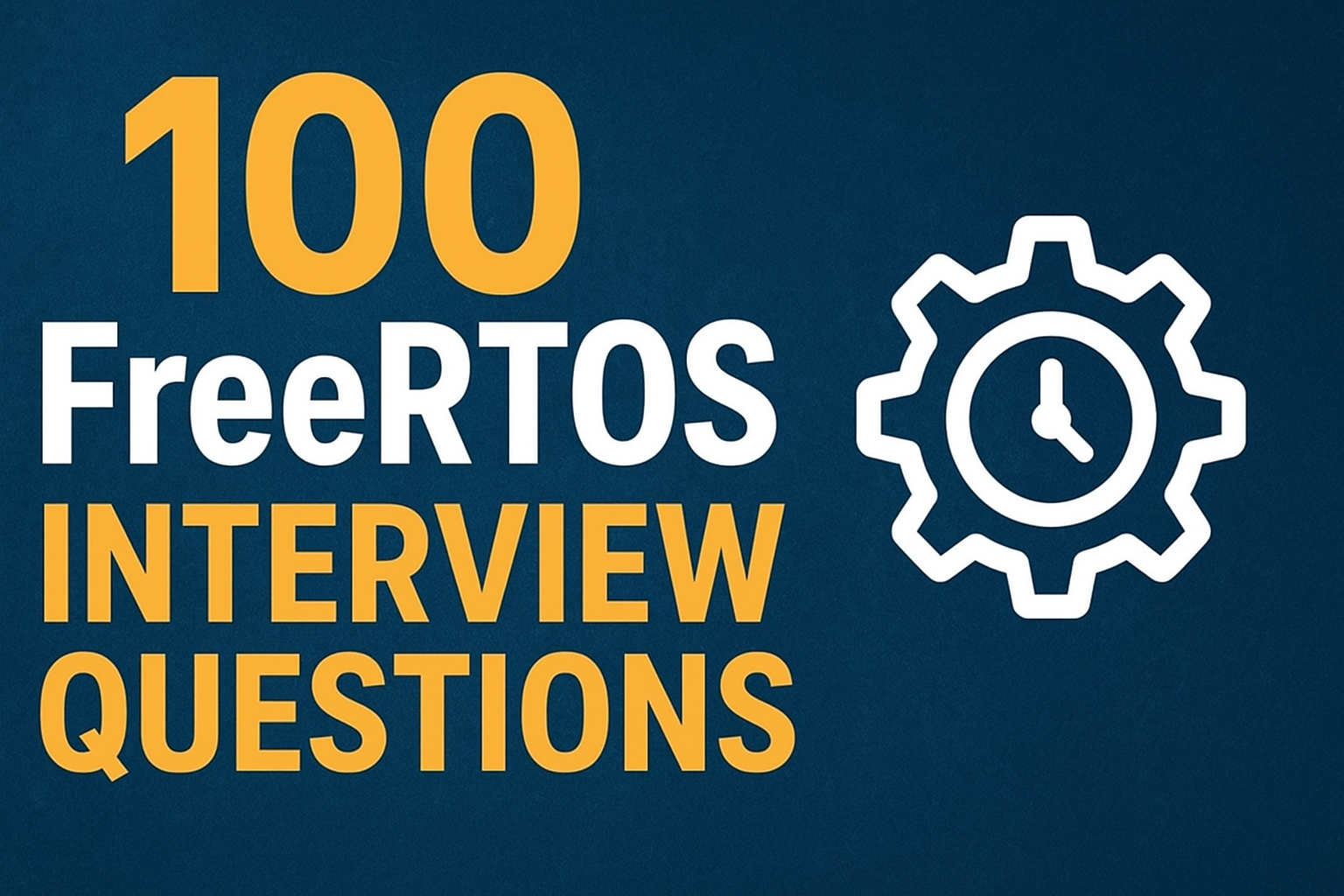
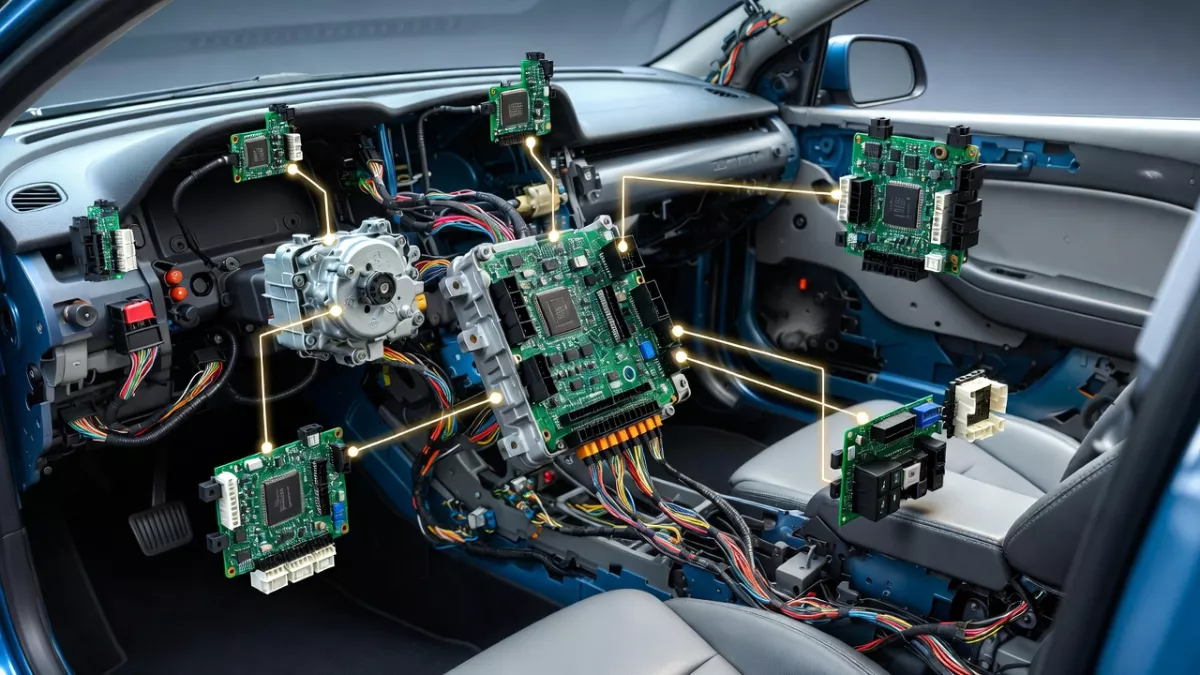
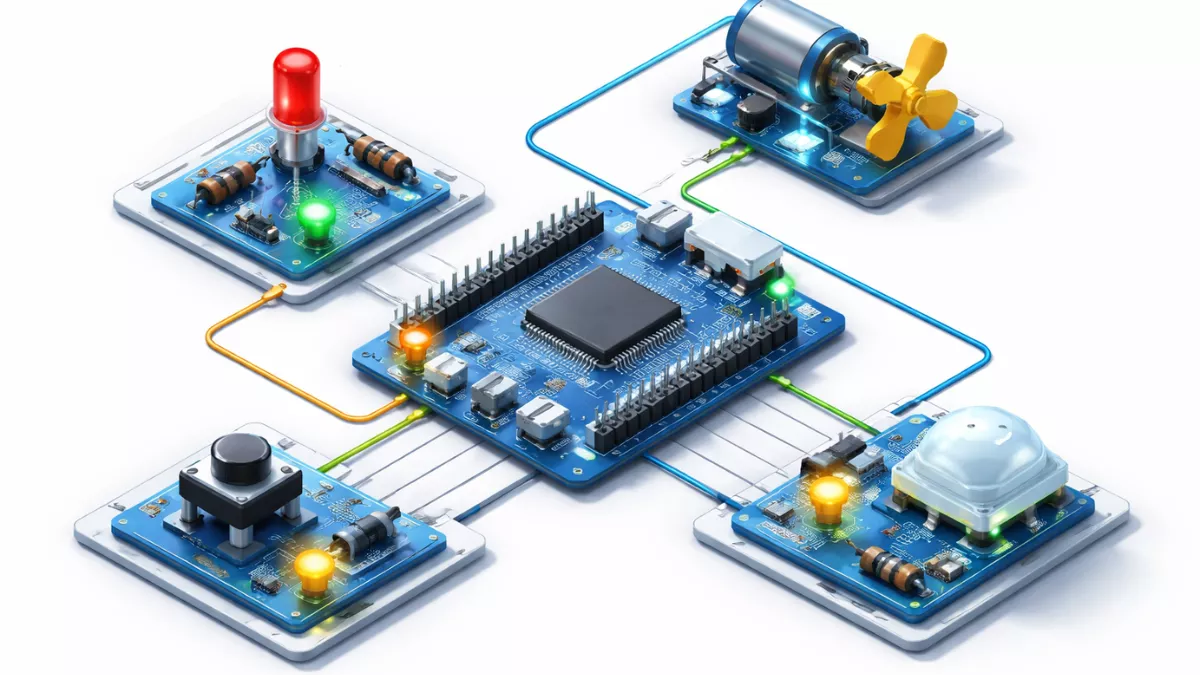




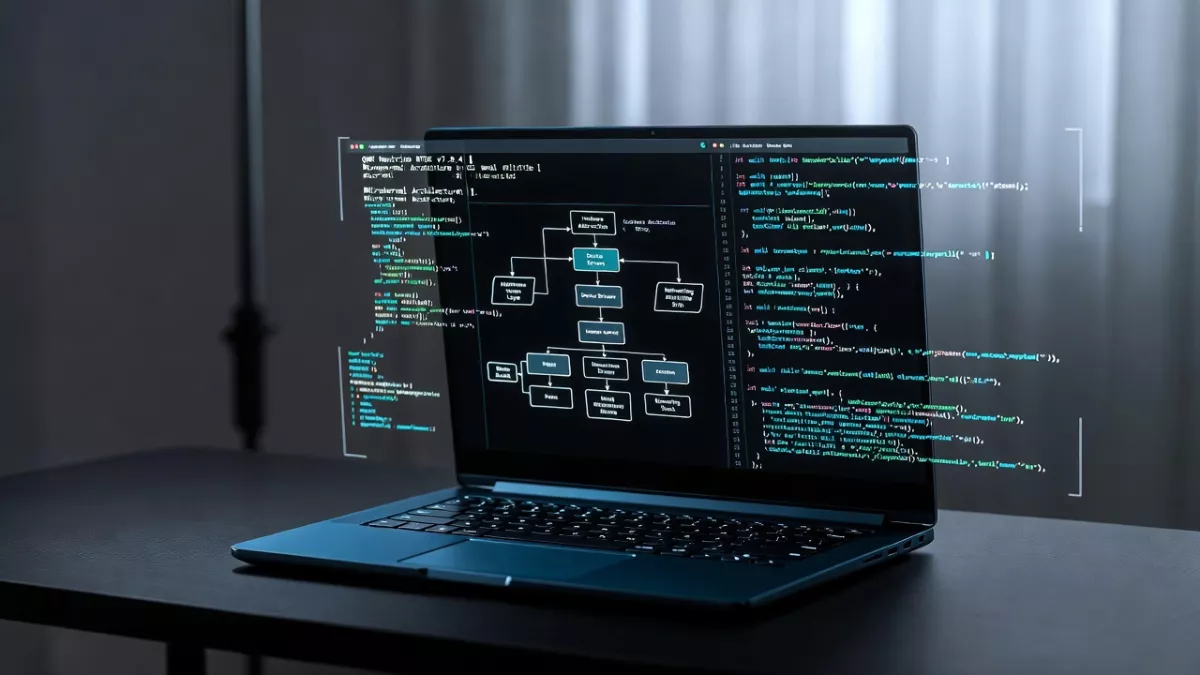

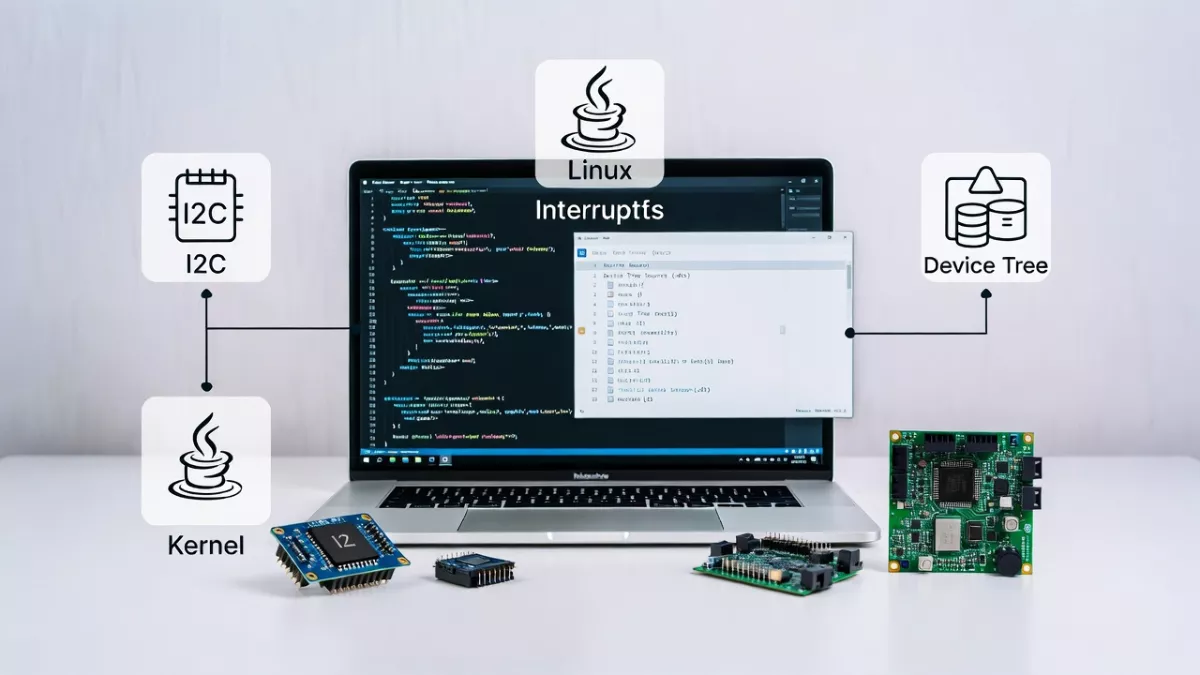
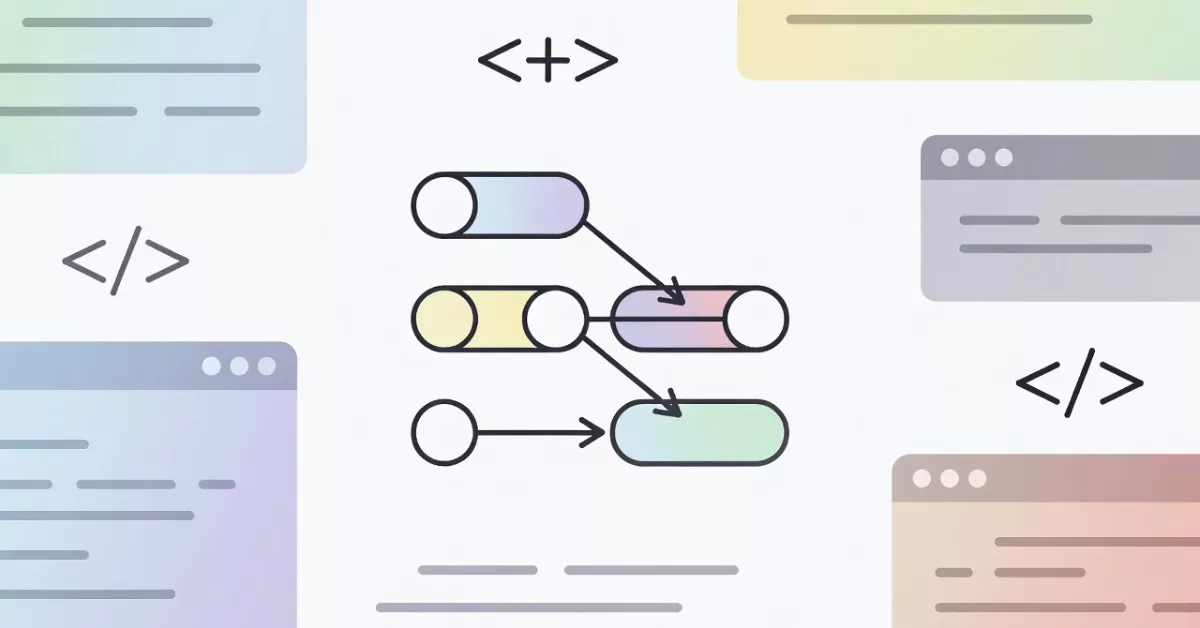

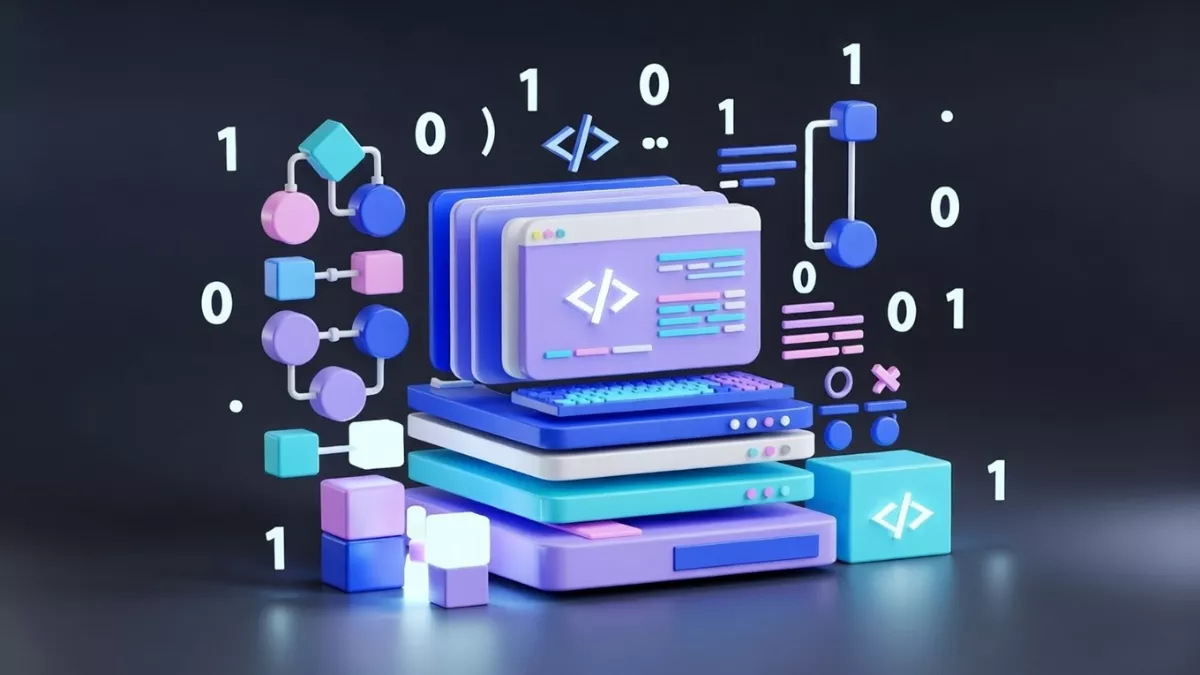

Very interesting subject , thanks for posting.
You are a very bright individual!